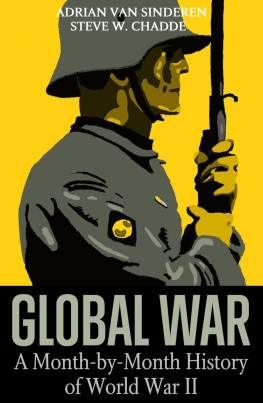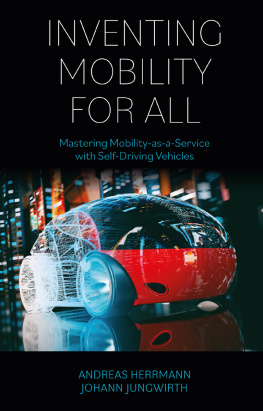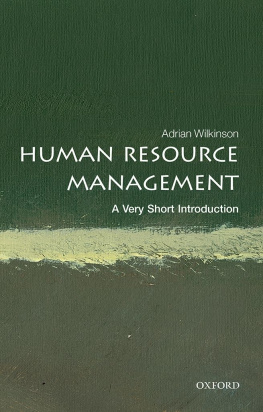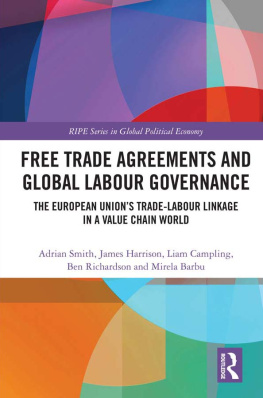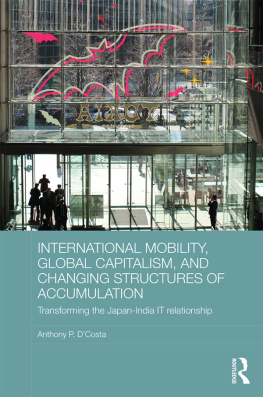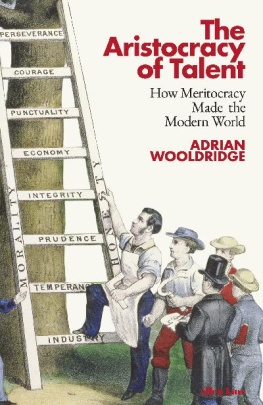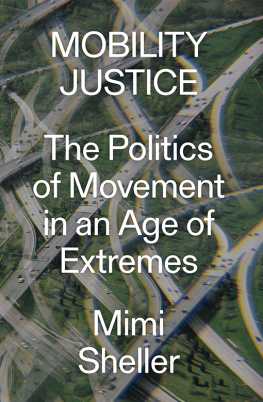First published 2006 by Transaction Publishers
Published 2017 by Routledge
2 Park Square, Milton Park, Abingdon, Oxon 0X14 4RN
711 Third Avenue, New York, NY 10017, USA
Routledge is an imprint of the Taylor & Francis Group, an informa business
Copyright 2006 by Taylor & Francis.
All rights reserved. No part of this book may be reprinted or reproduced or utilised in any form or by any electronic, mechanical, or other means, now known or hereafter invented, including photocopying and recording, or in any information storage or retrieval system, without permission in writing from the publishers.
Notice:
Product or corporate names may be trademarks or registered trademarks, and are used only for identification and explanation without intent to infringe.
Library of Congress Catalog Number: 2006040414
Library of Congress Cataloging-in-Publication Data
The human face of global mobility : international highly skilled migration in Europe, North America and the Asia-Pacific / Michael Peter Smith and Adrian Favell, editors.
p. cm.(Comparative urban and community research ; v. 8)
ISBN 1-4128-0520-1 (alk. paper)
1. Brain drain. 2. Professional employees. 3. Skilled labor. 4. Emigration and immigration. I. Smith, Michael P. II. Favell, Adrian. III. Series.
HT110.C65 v. 8
[HD8038]
[331.12791]
2006040414
ISBN 13: 978-1-4128-0520-9 (pbk)
Contents
Adrian Favell, Miriam Feldblum and Michael Peter Smith
Sandra Lavenex
Ettore Recchi
Jeanne Batalova and B. Lindsay Lowell
Gary P. Freeman and David K. Hill
Jeannette Money and Dana Zartner Falstrom
Paula Chakravartty
Katalin Szelnyi
dl Bozkurt
Adrian Favell
About the Contributors
Authors
Jeanne Batalova, Migration Policy Institute, Washington DC
dl Bozkurt, PhD Candidate in Sociology, UCLA
Paula Chakravartty, Assistant Professor of Communication, UMass, Amherst
Dana Zartner Falstrom, PhD Candidate in Political Science, UC Davis
Adrian Favell, Associate Professor of Sociology, UCLA
Miriam Feldblum, Faculty Associate in Humanities and Special
Assistant to the President, Caltech
Gary P. Freeman, Professor of Government, University of Texas, Austin
David K. Hill, PhD Candidate in Government, Cornell University
Sandra Lavenex, Assistant Professor of Political Science, University of Bern
B. Lindsay Lowell, Director of Policy Studies, Georgetown University
Jeannette Money, Associate Professor of Political Science, UC Davis
Ettore Recchi, Associate Professor of Sociology, University of Florence
Michael Peter Smith, Professor of Community Studies and Development, UC Davis
Katalin Szelnyi, PhD Candidate in Education, UCLA
UCLA International Institute Working Group
Thanks also are due to the several other regular or occasional members of the UCLA working group on global mobility, who contributed papers, ideas and commentaries during our two years of meetings.
Rafael Alarcn, Sociology, El Colegio de la Frontera Norte
William Clark, Geography, UCLA
Jorge Durand, Anthropology, University of Guadalajara
Rubn Hernndez-Lon, Sociology, UCLA
David Jacobson, Sociology, Arizona State University
Marian Katz, Sociology, UCLA
Harlan Koff, Political Science, University of Lille
Ivan Light, Sociology, UCLA
Marianne de Laet, Anthropology, Harvey Mudd College
Mingang Lin, Sociology, Suchong University
Steve Loyal, Sociology, University College Dublin
Paul Ong, Urban Planning, UCLA
Philip Martin, Agricultural Economics, UC Davis
Roger Penn, Sociology, University of Lancaster
Renee Reichl, Sociology, UCLA
Sabeen Sandhu, Sociology, UC Irvine
Kristin Surak, Sociology, UCLA
Roger Waldinger, Sociology, UCLA
Takeo Yamamoto, Sociology, Kwansei Gakuin University
Min Zhou, Sociology, UCLA
Xiaolei Wu, Anthropology, UCLA
Thanks also especially to Leah Halvorson, UCLA, for help with logistics throughout. Additional papers and commentaries are available on our wesbite:
http://www.isop.ucla.edu/ccgr/mobility.asp
1
The Human Face of Global Mobility: A Research Agenda
Favell Adrian, Feldblum Miriam and Peter Smith Michael
Talk of globalization by political economists has familiarized us with the idea that the continued liberalization of world trade, and the movement of goods, capital and services on which it is based, is also leading to a spectacular liberalization of the free movement of persons. Authors such as Saskia Sassen (1996, 2001) link these developments with a consequent decline in the control powers of nation-states over population movement, something seen as the fulfillment of a new age of migration (Castles and Miller, 2003). The discussion is, of course, controversial. Despite market forces, the control functions of states do continue to pose obvious obstacles to poorer international migrants. Labor, for other political and cultural reasons, is often not as mobile as other factors of production. Political scientists are also right to remind us that political and institutional factorsthe drama of international relations, variation in national policy approaches, attempts to coordinate border control or the policing of movement, and evolving modes of international governanceall pose significant constraints and boundaries on unfettered movement, at all levels of the economy (Zolberg, 1999; Freeman, 1995: Money, 1999; Guiraudon and Joppke, 2001).
In most of these discussions however, labor migration is undifferentiated. Distinctions are rarely drawn between the processes, policies or politics shaping highly skilled or professional migration, as opposed to those behind unskilled migration. To be sure, when the focus turns to the movement of highly educated and talented migrants, many assume there are likely to be fewer barriers of all kinds to these forms of global free movement and that the phenomenon is growing in magnitude and significance. To put it in the parlance of global city theorists (Castells 2000; Taylor, 2004), the virtual space of flows on which new global networks of capital and trade are based, must also be peopled by mobile persons who, it is assumed, are embodied by the worlds growing cadre of international highly skilled migrants (Beaverstock, 2001c). Some authors even speak of the emergence of new global elites or a transnational capitalist class, with unprecedented mobile and cosmopolitan lifestyles, presaging dramatic social change to the national order of things (e.g., Sklair, 2001). These heroes of global free movementtop ranked employees of multinational corporations, international finance, IT companies, scientific research agencies and so onare, presumably, the human hands, brains and faces behind the impersonal dynamics of global markets and nation-state decline.





